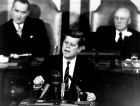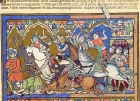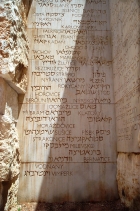Planning
Planning at A level takes several forms. Awarding bodies offer quite different specifications, and choices within these specifications. However, there are also strict requirements common to all, including the teaching of material that covers a minimum of 200 years and the teaching of British history. The decision about which specification and which topics to teach will require consultation, careful attention to the resources available, and a clear timetable for implementation. There are then decisions to be made, some of them in consultation with senior leadership, about AS and A Level, and the scheduling and balance of time given to the different components of the specification. Individual teachers will need to plan to teach the topics in ways that enable their students to meet the assessment criteria and develop their historical thinking. In this section you will find helpful articles, guides and resources to enable you to plan your A Level teaching.
-

'But why then?' Chronological context and historical interpretations
ArticleClick to view -

'I feel if I say this in my essay it’s not going to be as strong’
ArticleClick to view -

'Victims of history': Challenging students’ perceptions of women in history
ArticleClick to view -

A poodle with bite: Using ICT to make AS level more rigorous
ArticleClick to view -

Allowing A-level students to choose their own coursework focus
ArticleClick to view -

Are you ready for your close-up?
ArticleClick to view -

Basket weaving in Advanced level history...how to plan and teach the 100 year study
ArticleClick to view -

Carr, Evans, Oakshott and Rudge: the benefits of AEA history
ArticleClick to view -

Chatting about the sixties: historical reasoning in essay-writing
ArticleClick to view -

Couching counterfactuals in knowledge when explaining the Salem witch trials with Year 13
ArticleClick to view -

Creating confident historical readers at A-level
ArticleClick to view -

Cultivating curiosity about complexity
ArticleClick to view -

Cunning Plan 163.2: Developing an A-level course in medieval history
ArticleClick to view -

Cunning Plan 175: Using the England's Immigrants database
ArticleClick to view -

Deepening post-16 students' historical engagement with the Holocaust
ArticleClick to view -

Developing awareness of the need to select evidence
ArticleClick to view -

Developing sixth-form students' thinking about historical interpretation
ArticleClick to view -

Developing students' thinking about change and continuity
ArticleClick to view -

Developing transferable knowledge at A-level
ArticleClick to view -

Distant voices, familiar echoes: exploiting the resources to which we all have access
ArticleClick to view

